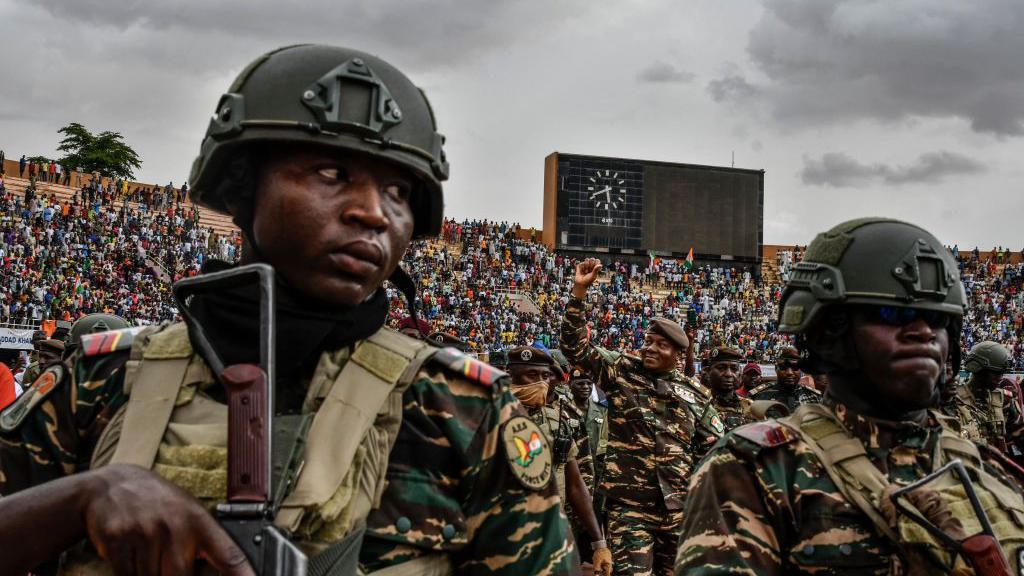Relations between Niger’s military regime and France have soured significantly since the coup that ousted President Mohamed Bazoum in July 2023. The military junta has aimed to assert control over the country’s economy, particularly targeting the uranium mining sector, which is critical given Niger’s role in supplying nuclear power to Europe. This week, the French state nuclear company Orano reported that the Nigerien government had taken operational control of its local subsidiary, Somaïr. Orano’s attempts to resume uranium exports have been thwarted by the junta, leading the company into financial distress. Given that Niger contributed 25% of Europe’s uranium supply in 2022, the implications of this standoff extend beyond corporate concerns and could exacerbate Europe’s energy challenges amid ongoing climate change initiatives.
For French President Emmanuel Macron, the situation presents a significant image problem, compounded by deteriorating relations with other African states, exemplified by Chad’s termination of a defense agreement and Senegal’s insistence on closing its French military base. With France relying heavily on uranium imports—over 90,000 tonnes in the past decade, approximately 20% sourced from Niger—the loss of Orano’s operations could present a substantial challenge to the nation’s energy supply, threatening its status as a leader in carbon emissions reduction through nuclear energy. France has not produced uranium domestically for over two decades, making it heavily dependent on external sources, particularly from Kazakhstan, Niger, and other countries.
Although alternatives for uranium supply exist—with countries like Uzbekistan, Australia, and Namibia positioned to fill any gaps—France may face political and economic repercussions. In the wake of the Nigerien crisis, other uranium suppliers stepped in, compensating for a significant drop in EU imports from Niger, yet this shift increased reliance on Russian uranium imports. This presents a double-edged sword for Europe as it seeks to maintain pressure on Russia during the Ukraine conflict, complicating France’s and the EU’s broader geopolitical strategies.
Niger’s junta is increasingly turning away from its traditional Western partnerships, with ties to Russia growing stronger. Russian military contractors have been assisting Niger and its neighboring nations like Mali and Burkina Faso in combat operations, creating a security alignment that favors Russian influence at the expense of Western nations. The emergence of Iran as a potential buyer for Nigerien uranium intensifies this shift. Following Niger’s Prime Minister Ali Mahamane Lamine Zeine’s visit to Tehran, speculation about uranium deals between the two countries has arisen, highlighting the junta’s desire to diversify partnerships and reduce reliance on Western nations.
The historical context of French-Nigerien relations has fostered resentment within Niger, leading to nationalist sentiments that have intensified following the coup. Orano has found itself in a position of vulnerability, caught in the middle of escalating tensions between the junta and France. Despite attempts to stay under the radar and maintain operational continuity, the company’s blocked exports and financial troubles have led to a deterioration of its relationship with the Nigerien government. This culminated in the junta’s decision to cancel Orano’s rights to develop a new uranium mine, which was a significant obstacle to future uranium production growth in Niger.
As the paralysis surrounding Orano’s operations continues, both the company and Niger’s economy face dire consequences, jeopardizing export earnings and job security for local communities, particularly in the uranium-rich northern region. The Nigerien junta appears unconcerned, buoyed by new revenue from oil exports through a recently constructed Chinese pipeline, allowing it to pursue policies that undermine its traditional economic partnership with France. This situation signals a critical juncture not only for Niger’s economic dynamics but also for France’s position and influence on the African continent, as it grapples with the broader implications of shifting alliances and energy dependencies in an increasingly multipolar world.

